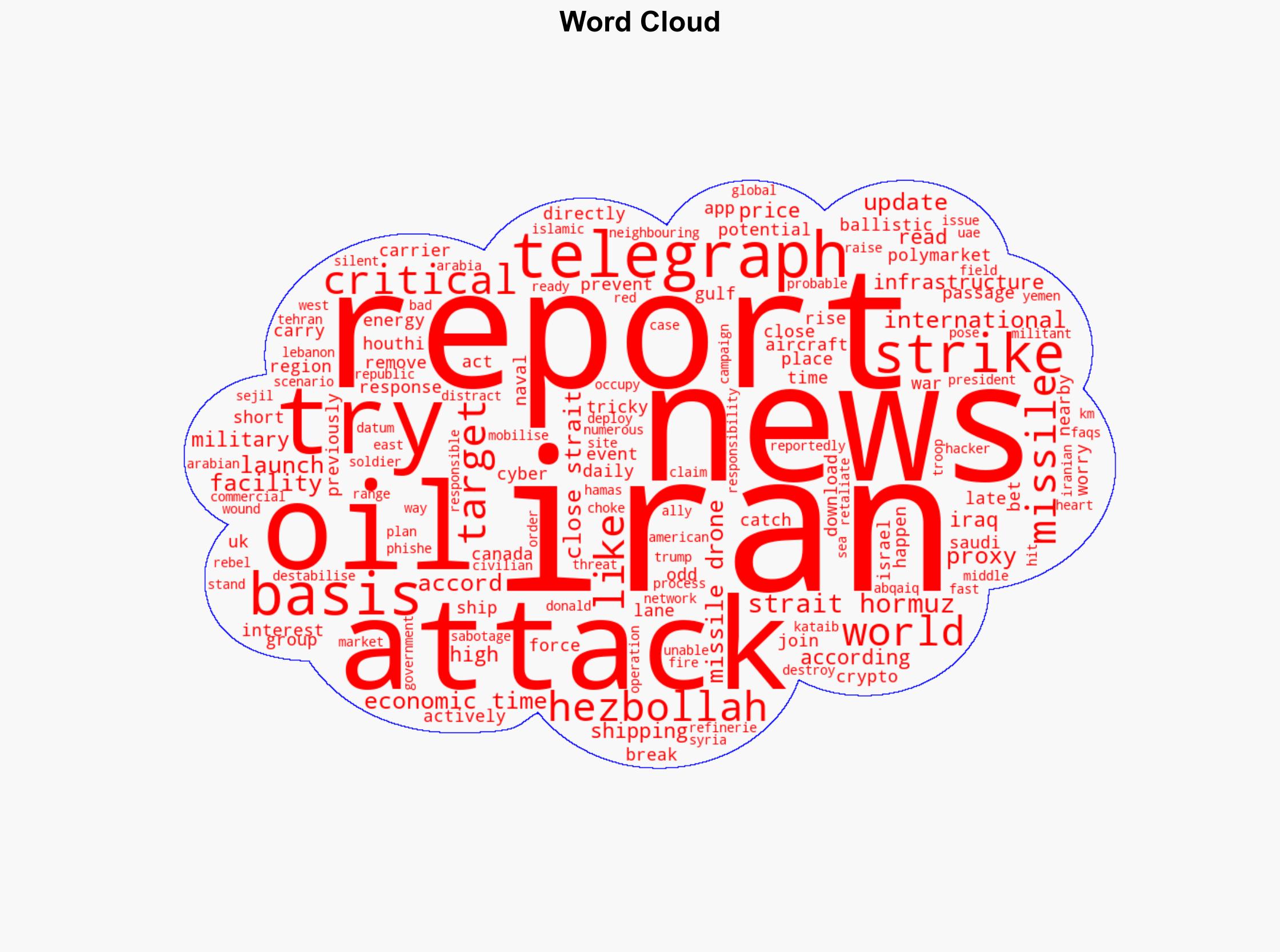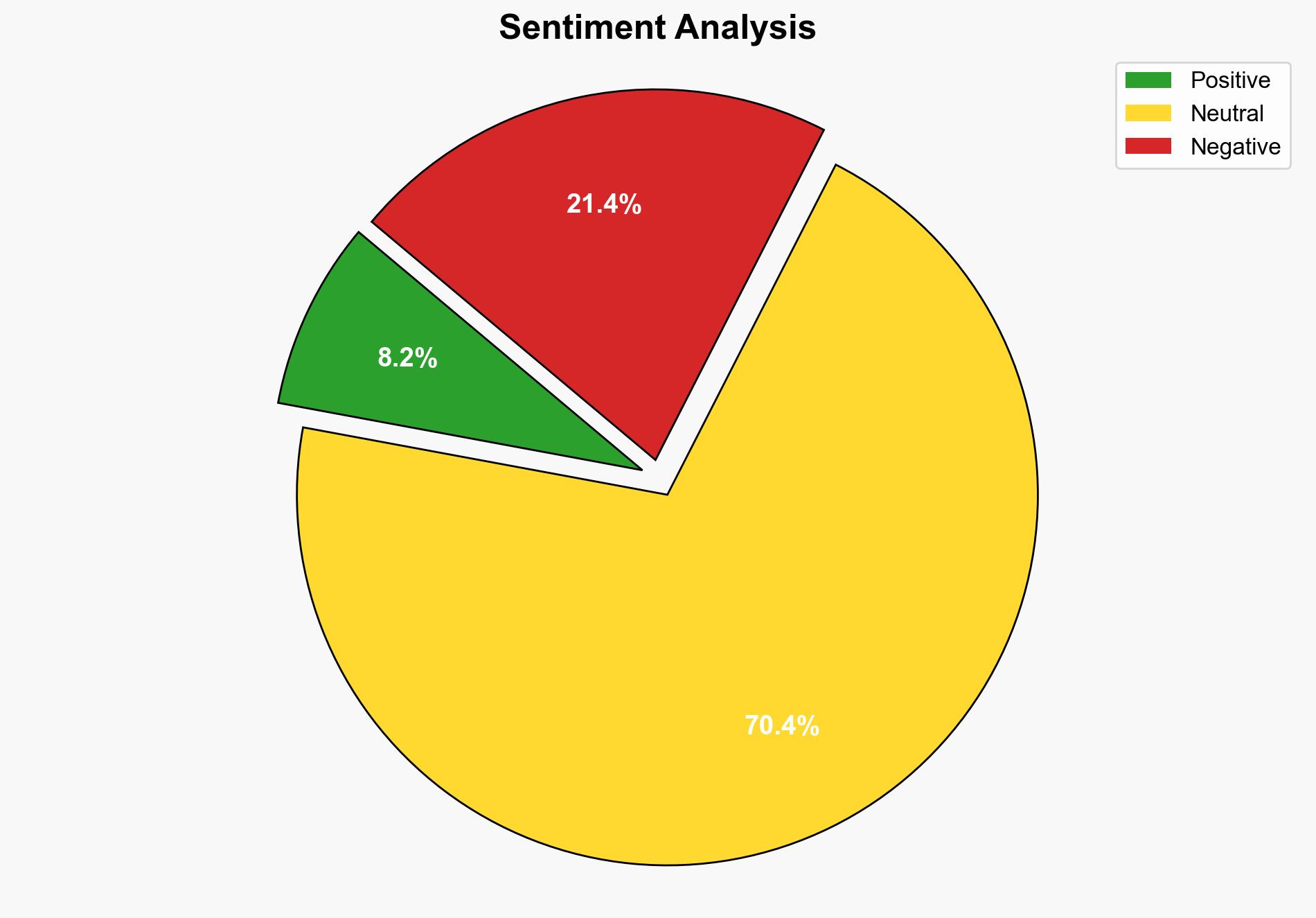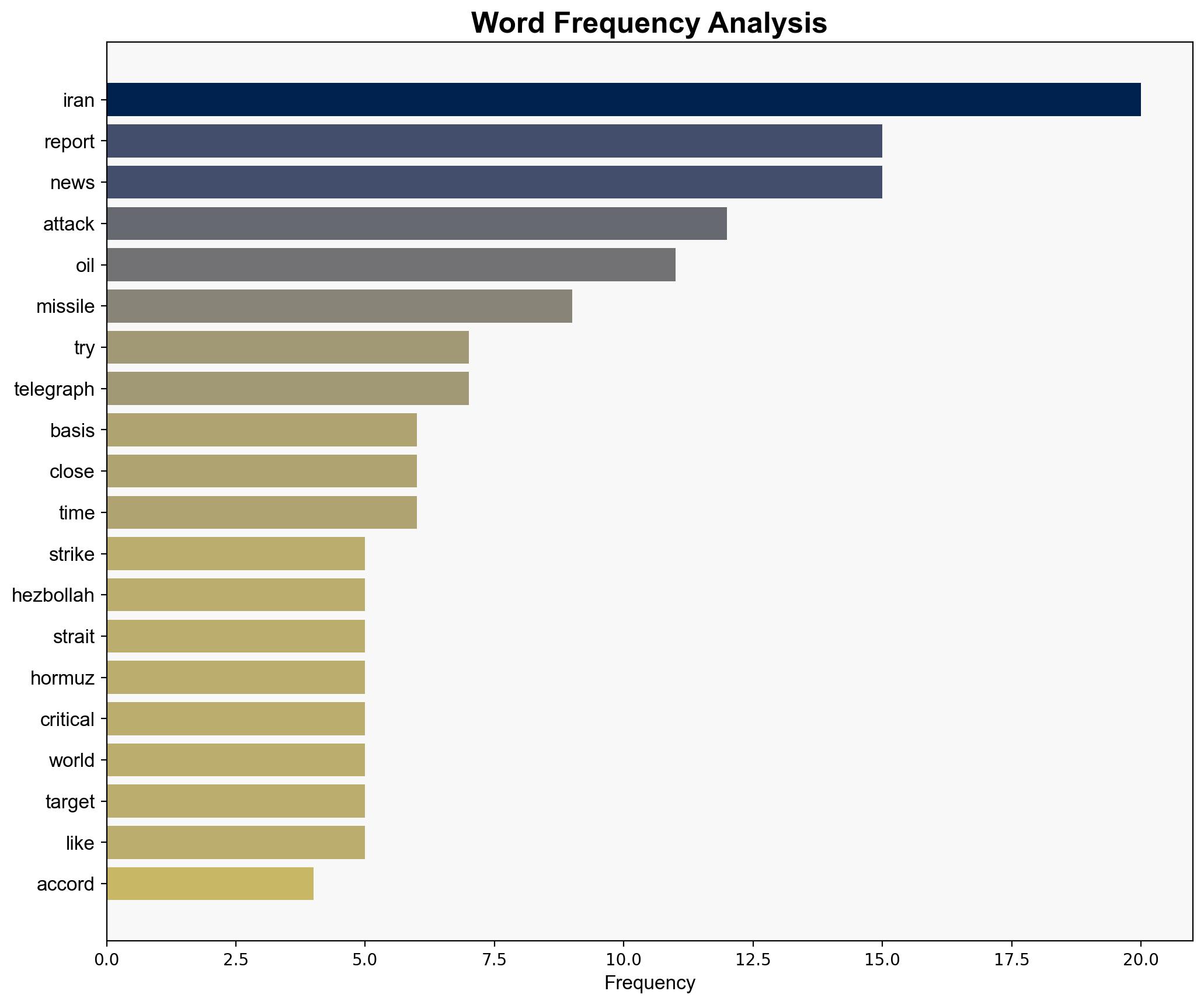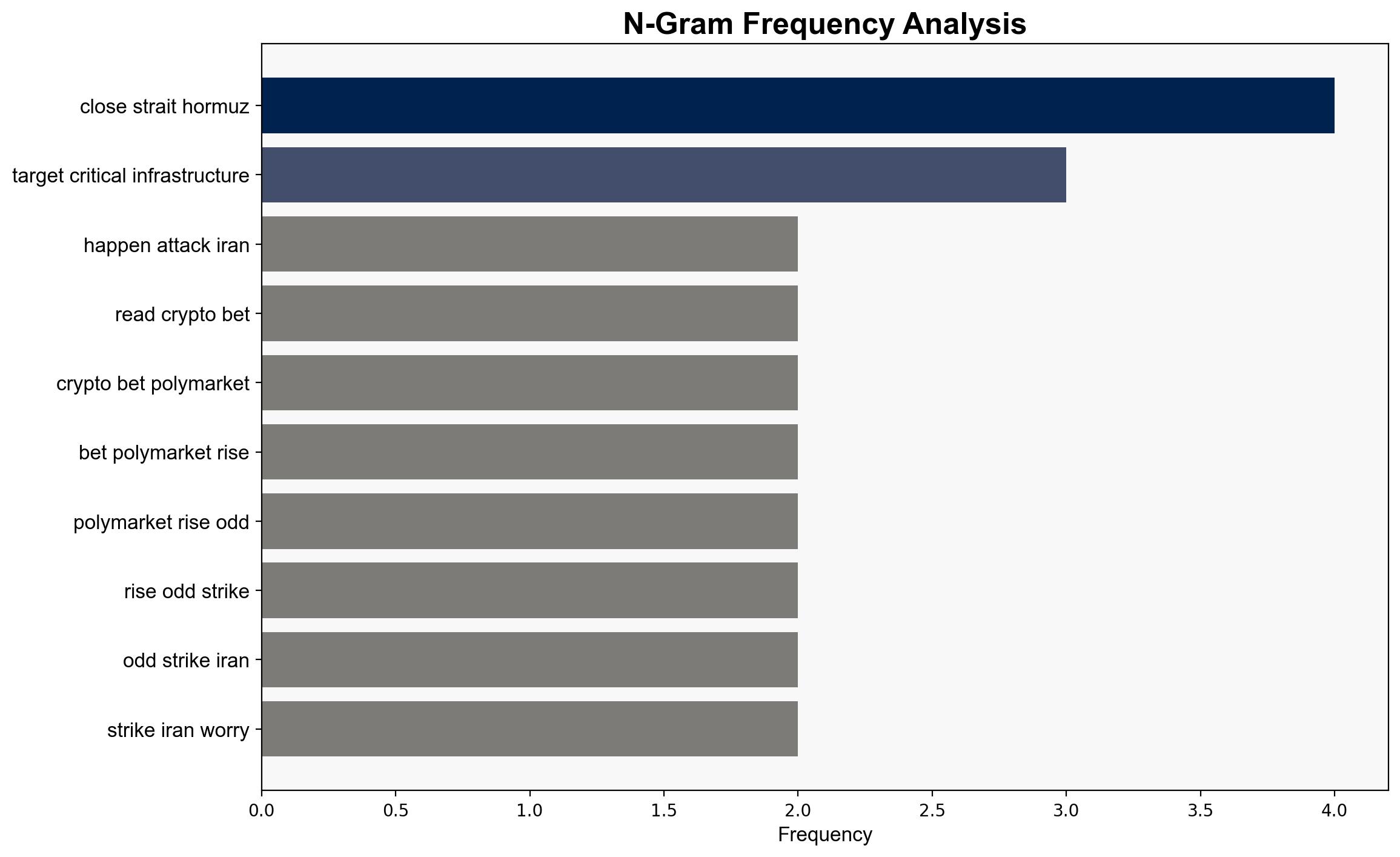Five ways Iran can retaliate if US strikes the Islamic Republic – The Times of India
Published on: 2025-06-19
Intelligence Report: Five Ways Iran Can Retaliate if US Strikes the Islamic Republic – The Times of India
1. BLUF (Bottom Line Up Front)
Iran is likely to employ a multifaceted retaliation strategy if the US conducts a strike. Potential responses include closing the Strait of Hormuz, missile attacks on US bases, proxy group mobilizations, targeting critical infrastructure, and cyber attacks. These actions could destabilize regional security and global energy markets. It is recommended to enhance regional military readiness and strengthen cybersecurity defenses.
2. Detailed Analysis
The following structured analytic techniques have been applied to ensure methodological consistency:
ACH 2.0
Iran’s strategic intentions include disrupting US influence and leveraging asymmetric warfare capabilities to maximize impact while minimizing direct confrontation risks.
Indicators Development
Monitor increased activity in Iranian military communications, proxy group mobilizations, and heightened cyber operations as indicators of imminent retaliation.
Narrative Pattern Analysis
Iran may amplify anti-US narratives to galvanize support and justify retaliatory actions, potentially increasing recruitment and incitement efforts.
Network Influence Mapping
Identify and monitor key Iranian proxies such as Hezbollah, Kataib Hezbollah, and the Houthis to assess their readiness and influence in potential retaliatory operations.
Bayesian Scenario Modeling
Probabilistic models suggest a high likelihood of Iran closing the Strait of Hormuz and conducting proxy attacks, with moderate probability of direct missile strikes and cyber operations.
3. Implications and Strategic Risks
Closing the Strait of Hormuz could severely impact global oil supply, causing economic instability. Missile and proxy attacks may escalate regional conflicts, while cyber attacks pose significant threats to critical infrastructure. These actions could lead to broader geopolitical tensions and necessitate international diplomatic interventions.
4. Recommendations and Outlook
- Enhance military readiness in the Middle East to deter and respond to potential Iranian actions.
- Strengthen cybersecurity measures to protect critical infrastructure from potential Iranian cyber attacks.
- Engage in diplomatic efforts to de-escalate tensions and prevent further conflict escalation.
- Scenario-based projections suggest preparing for best-case (diplomatic resolution), worst-case (full-scale regional conflict), and most likely (limited military engagements and economic disruptions) outcomes.
5. Key Individuals and Entities
Monitor activities of key Iranian figures and entities involved in military and cyber operations, as well as leaders of proxy groups such as Hezbollah and the Houthis.
6. Thematic Tags
national security threats, cybersecurity, counter-terrorism, regional focus




